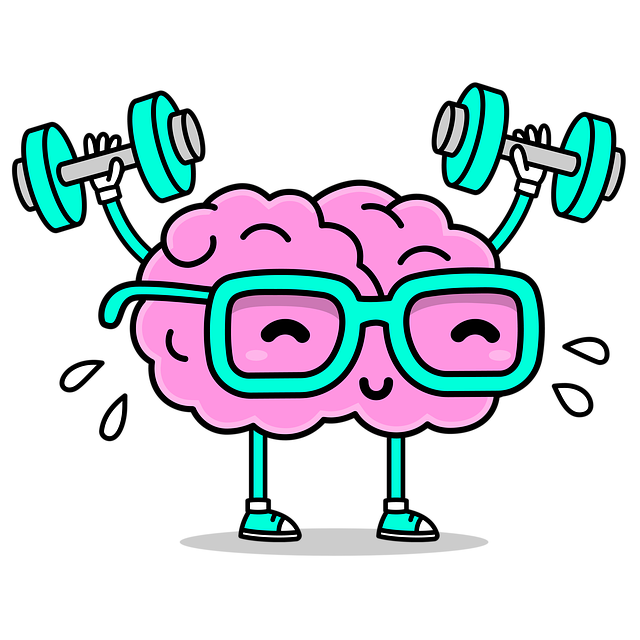Northglenn Interpersonal Issues Therapy emphasizes self-care as a cornerstone of mental wellness, especially in high-stress professions like healthcare. By addressing personal needs and stressor identification, their approach guides individuals to develop effective coping skills and healthier self-care routines. This includes tailored activities like exercise, mindfulness, and hobbies, along with Empathy Building Strategies and public awareness campaigns. Overcoming barriers through realistic goal setting and community programs enhances self-care sustainability. Regularly tracking progress and adjusting routines, as supported by Northglenn Interpersonal Issues Therapy, ensures personal growth and improved mental health outcomes.
In today’s fast-paced world, self-care is not a luxury but a necessity. Understanding and prioritizing self-care forms the bedrock of overall well-being, as highlighted in Northglenn Interpersonal Issues Therapy. This comprehensive guide explores effective strategies to enhance your self-care practices. From recognizing personal needs to implementing daily routines, overcoming barriers, and measuring success, each step is designed to help you navigate a transformative journey towards improved mental and emotional health.
- Understanding Self-Care: The Foundation of Well-Being
- Identifying Personal Needs and Priorities in Northglenn Interpersonal Issues Therapy
- Strategies for Incorporating Daily Self-Care Routines
- Overcoming Barriers and Sticking to Self-Care Practices
- Measuring Success and Adjusting Your Self-Care Journey
Understanding Self-Care: The Foundation of Well-Being

Self-care isn’t a luxury; it’s a necessity for maintaining overall well-being and mental health. At Northglenn Interpersonal Issues Therapy, we emphasize its foundational role in our therapy services. In today’s fast-paced world, where burnout is prevalent, especially among healthcare providers, recognizing the importance of self-care practices cannot be overstated. It involves a range of activities that help individuals recharge, manage stress, and nurture their physical and mental health.
By integrating self-care into daily routines, individuals can enhance resilience, improve mood, and boost productivity. This could include engaging in positive thinking exercises, practicing mindfulness, getting enough sleep, exercising regularly, and setting healthy boundaries. Moreover, public awareness campaigns development focused on burnout prevention strategies for healthcare providers is crucial to fostering a culture of self-care and well-being within the medical community.
Identifying Personal Needs and Priorities in Northglenn Interpersonal Issues Therapy

In Northglenn Interpersonal Issues Therapy, identifying personal needs and priorities is a foundational step in enhancing self-care practices. This process involves delving into one’s emotions, relationships, and lifestyle to uncover underlying issues that may be contributing to stress or burnout. Therapists guide individuals through reflective exercises, encouraging them to prioritize their well-being by recognizing both immediate and long-term goals. By fostering a deeper understanding of personal needs, this approach equips clients with the tools to develop effective coping skills, thereby preventing burnout and promoting healthier self-care routines.
The Northglenn Interpersonal Issues Therapy emphasizes that prioritizing self-care is not merely an individual endeavor but also involves navigating interpersonal relationships. Effective communication, setting boundaries, and managing conflicts are key aspects of this process. Through therapy, individuals learn to identify toxic patterns in their interactions and replace them with healthier behaviors, which significantly contributes to overall mental well-being and effective coping strategies for stress management.
Strategies for Incorporating Daily Self-Care Routines

Incorporating daily self-care routines is a transformative practice that can greatly benefit one’s mental health and overall well-being. At Northglenn Interpersonal Issues Therapy, we emphasize the importance of setting aside dedicated time for self-nurturing activities. A successful self-care routine involves tailoring activities to individual needs and preferences. Start by identifying areas in your life where stress or neglect has crept in—whether it’s physical health, mental clarity, or emotional resilience. Develop a personalized plan that includes regular exercise, mindfulness practices like meditation or deep breathing, and hobbies or creative outlets that bring joy.
Empathy Building Strategies can also be integrated into self-care routines to enhance overall well-being. Public Awareness Campaigns Development focused on the importance of self-care can further encourage individuals to prioritize their mental health. By creating a balanced schedule that incorporates both self-care activities and professional support when needed, one can effectively manage stress and cultivate a deeper sense of equilibrium in life.
Overcoming Barriers and Sticking to Self-Care Practices

Overcoming barriers to self-care is a crucial step on the path to well-being. Many individuals struggle to incorporate self-care practices into their daily routines due to busy schedules, work commitments, or even Northglenn interpersonal issues therapy sessions. It’s essential to recognize these obstacles and develop strategies to navigate them effectively. One effective approach involves setting realistic goals and starting small. For instance, dedicating just 15 minutes each day for mindfulness exercises or engaging in a short walk can be manageable and gradually build into longer self-care routines.
Community outreach program implementation and healthcare provider cultural competency training can also play significant roles. By fostering support systems and educating professionals on diverse cultural needs, these initiatives enhance individuals’ access to stress reduction methods tailored to their unique circumstances. Embracing these strategies ensures that self-care becomes an achievable and sustainable part of one’s life, leading to improved mental and physical health outcomes.
Measuring Success and Adjusting Your Self-Care Journey

Measuring success and adjusting your self-care journey is a crucial aspect of personal growth, especially when navigating Northglenn Interpersonal Issues Therapy. It’s important to set clear goals that align with your mental health objectives. For instance, if you’re focusing on stress management, track your daily or weekly stress levels using a journal or dedicated apps, noting any triggers and the effectiveness of your coping strategies. This data will help you identify patterns and make informed adjustments to your self-care routine.
Regularly evaluating your progress enables you to recognize what’s working and what needs improvement in terms of emotional regulation and mood management. By doing so, you can tailor your practices to better suit your unique needs, ensuring a more sustainable and successful self-care journey.
Self-care is a journey that requires commitment, awareness, and adaptation. As discussed in this article, understanding the foundation of well-being through practices like those offered by Northglenn Interpersonal Issues Therapy is key. By identifying personal needs and incorporating daily routines, individuals can overcome barriers and thrive. Remember, success lies not only in achieving goals but also in the continuous process of self-discovery and adjustment along one’s unique self-care journey.














